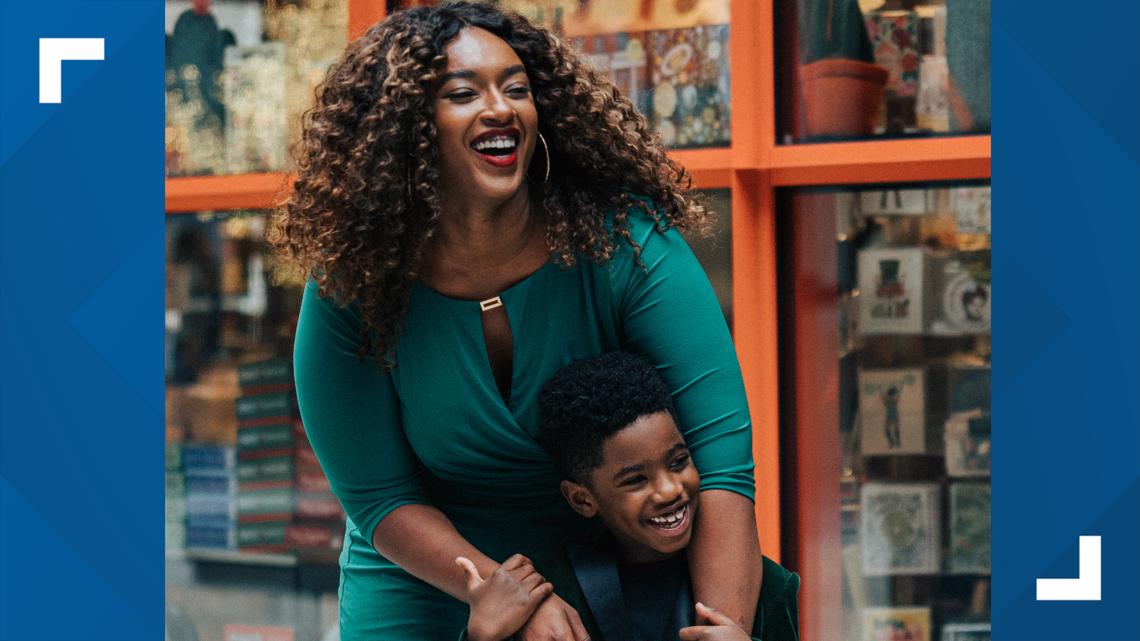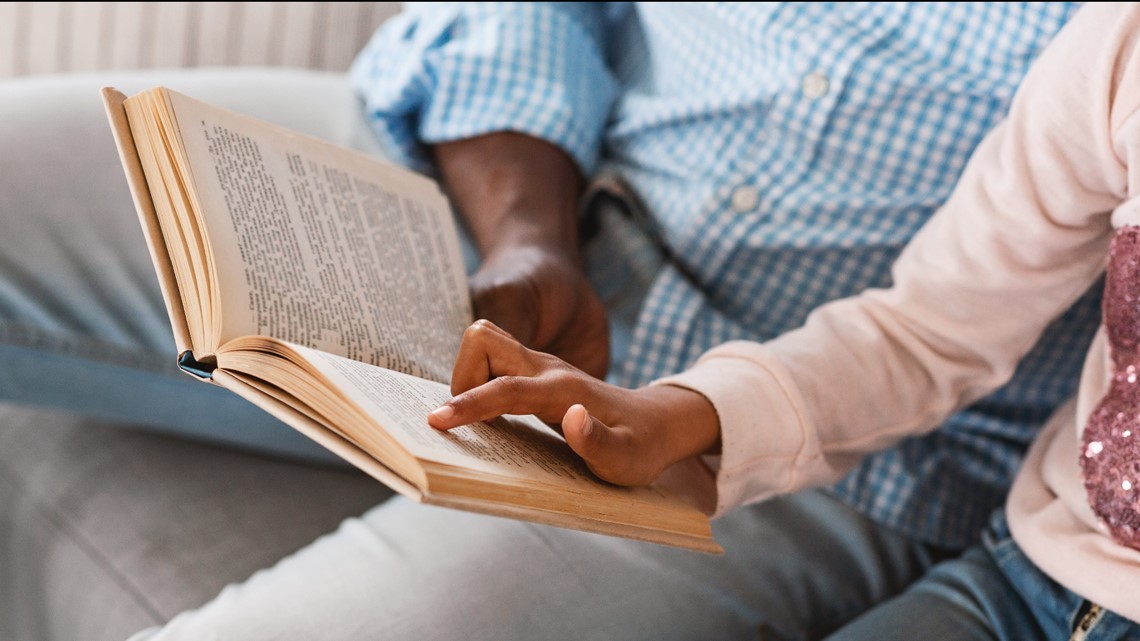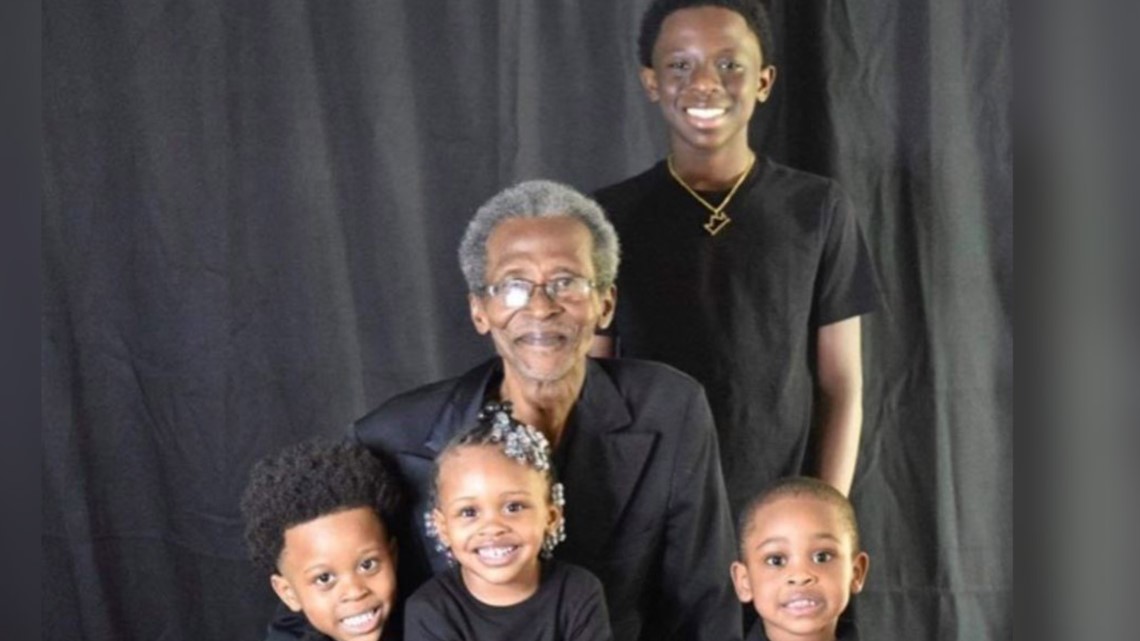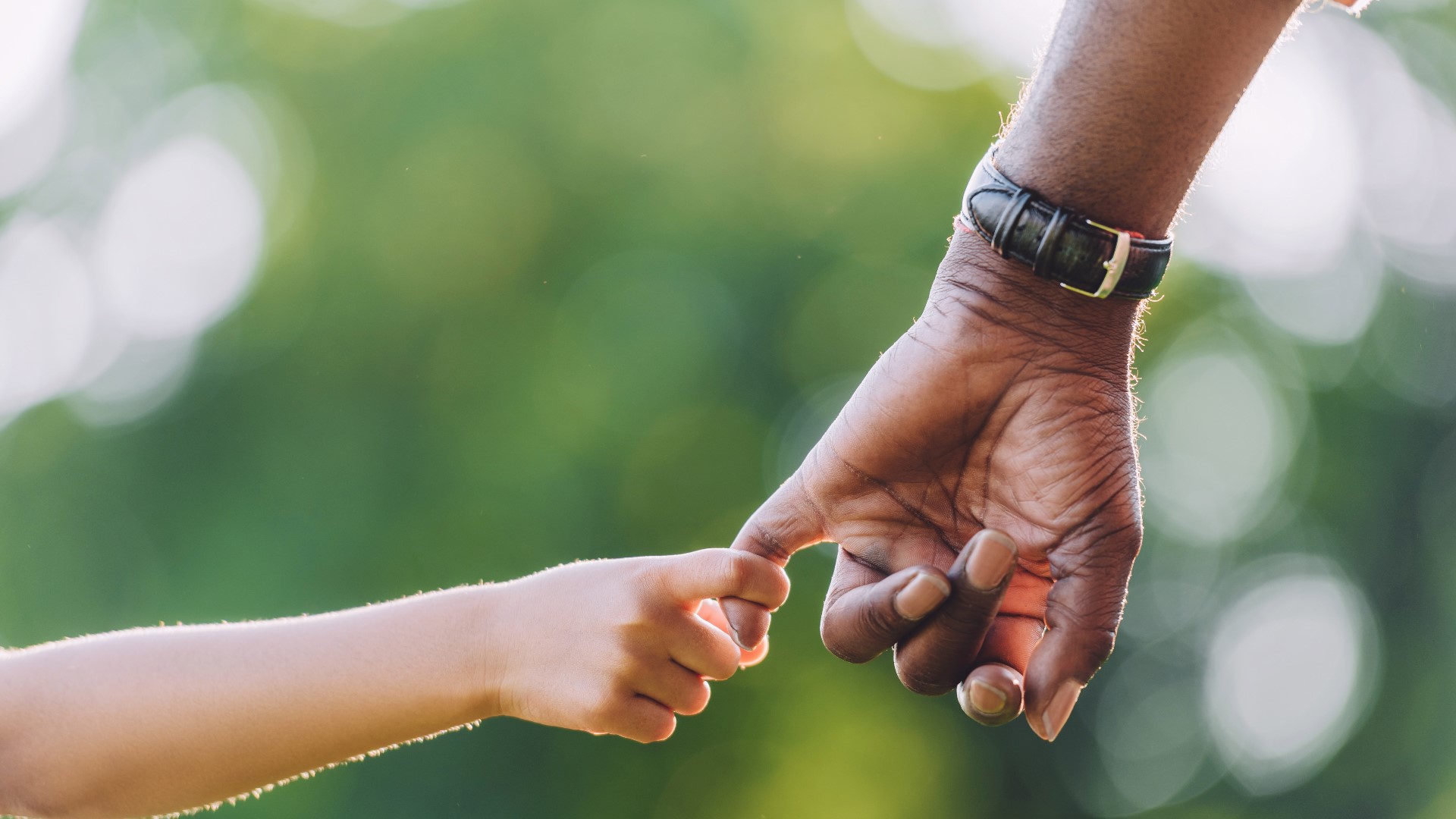ATLANTA — When Devorah Story's mom got sick at the outset of the pandemic, she said she basically became her round-the-clock caretaker.
Story, a plus-size model who lives outside Atlanta, has her parents living at home with her and her young son, Christian. She'd noticed herself feeling sick on set of a shoot about a week before, and was now worried she'd passed along to her mom this illness that had very suddenly and very totally consumed the world's attention and anxieties - COVID-19.
Monitoring her mother's symptoms, administering what home remedies she could, Story said it was a roller coaster of improvements and setbacks.
"I would wake up and hear her in the bathroom having these coughing fits and it would be like, 'Is this it? Is this gonna be the time we have to take her to the hospital?'" she said. "The thing was we did not want her to have to go to the hospital. Because once you go there, you're there by yourself."
Story's mother eventually got fully better, and their family settled into their new normal.
But as the school year starts, it poses the prospect of upending that normal. Story's son, who is seven years old, is in virtual learning for now. But she has the option of sending him to in-person classes. And the realities of her job, which often involves traveling to sets around the country, may necessitate it as work picks back up.
Her parents also still work and can't necessarily look after Christian during the day. He could stay for an extended period with his dad, who lives in Atlanta and is working from home right now, but they're also not sure how long that will continue, either.
Story said she might just weigh if it's possible to turn down a job, or she might just send her son back to school. It's a complex calculation with no easy answer.
And it raises thorny questions: if Christian goes back to school, what risk does he have of getting it and bringing it back home? Could Story's mom get sick again? Would her dad get sick this time?


They're thorny questions most families face right now, but made all the thornier for inter-generational households like Story's, who face a virus that disproportionately attacks the elderly and quite often is carried silently, unknowingly by the young.
And they're thorny questions that the best, most current research doesn't necessarily have clear answers for.
"It is a concern of our families. They tend to be very resilient, and move forward and always have the children's best interest in mind. But the children have concerns, too, about going to school and could they bring COVID home," said Dr. Susan Kelley, the director of Project Healthy Grandparents at Georgia State University.
Referrals to Project Healthy Grandparents can be made at the program's website https://phg.lewis.gsu.edu/ or by calling 404-413-1114
The program serves grandparents raising their grandchildren, providing various forms of aid, from meals to help with rent or utilities to even furniture, if need be. It's a program that serves a community that Dr. Kelley said includes something like 14,000 families just between Fulton and DeKalb counties.
"Thirty percent of the grandparents in our program are over age 60 and we have grandparents in their 70s and sometimes in their 80s who are raising grandchildren," Dr. Kelley said. "So the transmission across generations is a legitimate concern that they have."
It's pretty widely and universally agreed that, all things equal, it's best for children to physically be in school - for reasons that range from it being a better, more productive learning environment to how it is crucial for their social development.
But all things are not equal right now, of course - though that, too, doesn't mean it's a simple open-and-shut case for, well, shutting the schools.
The body of data is robust at this point that indicates children are less likely to get seriously ill from COVID than adults (though rare complications have been observed in some children). But there is also certainly robust evidence that they can get it and, it seems, spread it among each other.
A small handful of schools in metro Atlanta that opened for in-person learning have already temporarily closed due to COVID outbreaks. And in one particularly startling example, the Centers for Disease Control and Prevention issued a report earlier this month on a summer camp in Georgia that saw more than 200 campers and workers test positive for the coronavirus.
The pressing question is what threat do these outbreaks pose to adults, especially those who are more vulnerable either due to age or preexisting medical conditions?


That's not an easily settled matter. Cherokee County, the school system that has seen three high schools shut in the last two weeks, has reported numerous teachers and staff testing positive amid the outbreaks more widespread among students, though it's impossible to say whether they got it at school or brought it to school.
In the case of the Georgia camp, there were only seven people on-site over the age of 22, and only two of them tested positive.
Probably the most widely-cited and reported piece of research came from South Korea. That study found younger children were unlikely to transmit the virus to adults, but that older children could and were possibly even more likely to do so than adults themselves. Further data, however, called the finding on older children's transmissibility into question.
And so, parents are navigating incredibly murky waters on the school question. And for inter-generational households, again, they're all the murkier.
Hanna McCaskey's situation perhaps best embodies the difficult balance these families face. Her household includes her partner, her two sons and her father. She said her father is in his late 60s and has health issues, and that his situation has been a primary concern.
Her oldest son, 13, is for now doing virtual learning. But her younger son, who is 5, is going back to the classroom.
She's felt reassured by the steps her younger son's kindergarten class has taken, but admitted she wouldn't necessarily be comfortable with the idea of her older son going back to school.
"Honestly, because of the school that he attends, I am a little nervous if they do decide to go back, simply because it is a very small school," she said. "I don’t know how they would implement social distancing and enforce it ... if they're going to require masks, I'm not sure how they will enforce it. That's really my issue with his school, simply because it's smaller and I'm confident in his ability to do well with virtual learning. So, if I have the option I might just keep him home."
The tricky situation facing inter-generational families has also been compounded, as in most other respects of the coronavirus pandemic, in communities of color.
Pew Research Center reported in 2018 that a record 64 million Americans were living in multigenerational households. Of those, Asian, Hispanic and Black families were much more likely than white families to be living in such a home.
As of the last Census, in 2010, Georgia reportedly saw a nearly 40 percent rise in multigenerational households.
Both Story and McCaskey (who know one another) are Black women, and Story noted the levels of uncertainty their situations present right now.
"I think I would have to ask more questions," before sending her son back to school, Story said.
She noted the various pitfalls she could imagine - school bus rides, kids on the playground, trying to get them to wear masks and simply the size of classrooms.
"I don’t think that’s gonna be feasible for them to keep the kids social distancing," she said.


Both McCaskey and her partner tested positive for COVID earlier this year and got pretty sick, and she said she's wary of it coming back around. The CDC has indicated that "there are no confirmed reports to-date of a person being reinfected with COVID-19 within 3 months of initial infection" but that research is not yet definitive beyond that.
McCaskey's sons were also never tested, and she's also not certain whether they could still potentially spread it to her father or her mother, whom they often see and who has diabetes.
"I've recently started thinking about that simply because my youngest son just went back last week and I'm a little bit concerned about his exposure, so we might have to pare back how often we see my mom," she said. "But that is a discussion that I plan on having with her moving forward, just to see if she's comfortable."
11Alive Medical Correspondent Dr. Sujatha Reddy also has her parents living with her, and she has a four-and-a-half year old son. She said she's weighed the data herself, and felt comfortable sending her young child to his summer preschool camp.
"The question for people that live in multigenerational houses is how worried should they be, and I think if you have older parents in a house, everyone in that house has to be vigilant because obviously protecting the people over 60, 65 is what we need to do. It’s the most important thing to do," she said. "So multigenerational houses are a little bit of a different animal."
In her own house, Dr. Reddy said "it's virtually impossible to make him understand that he needs to be away from his grandparents," but that "if you have an older child that may be a conversation you try to have."
"I think, with a multigenerational family, that’s going to be a case-by-case basis because, if you have older people that have multiple health problems, you may try to isolate them as much as possible," she said.
Dr. Reddy also said that there's no one definitive answer to the school question, and that, right now, most families just have to make the best decision for themselves and their individual and community circumstances.
"You know your child best. You know how much they're missing school or not missing school. I think you also know your parenting style and your parenting responsibilities, and all that does play into it," she said. "It's very hard, as a parent, not to let your emotions come into this, but I think you really need to look at the cases in your area, you need to look at what is your school doing to try to protect your child. Do you think it's sufficient? Do you think it's not sufficient? Have there been cases in the school already? In your community, what's happening? All those factors should go into making that decision."
Dr. Kelley, of Project Healthy Grandparents at Georgia State, echoed Reddy, saying community COVID levels coming down would be a big factor in making intergenerational households feel more comfortable with in-person school.
"A lot of the families we serve want the children to be back in school. They know that’s a great place for the kids, where they can have other children to socialize with, and of course having the children home has been challenging, for both the children and the grandparents," she said. "There are challenges with at-home education particularly in the lower income families, who don't always have the technology. I believe our families would be more comfortable if the community transmission rates come down. I think they would be more comfortable sending their children to school."
But, she added, "it would be a tough decision for them to have to make when the time comes."
Story said the pull of school was difficult to ignore, in spite of her reservations.
"I'm also trying to consider the social element, and we're also trying to weigh whether we are still going to do sports, because at the end of the day this virus is not going anywhere anytime soon. So we're having to think about those things. It's just a lot of going back and forth," she said. "I think people are just adjusting accordingly, because this is literally the new norm."
MORE HEADLINES

